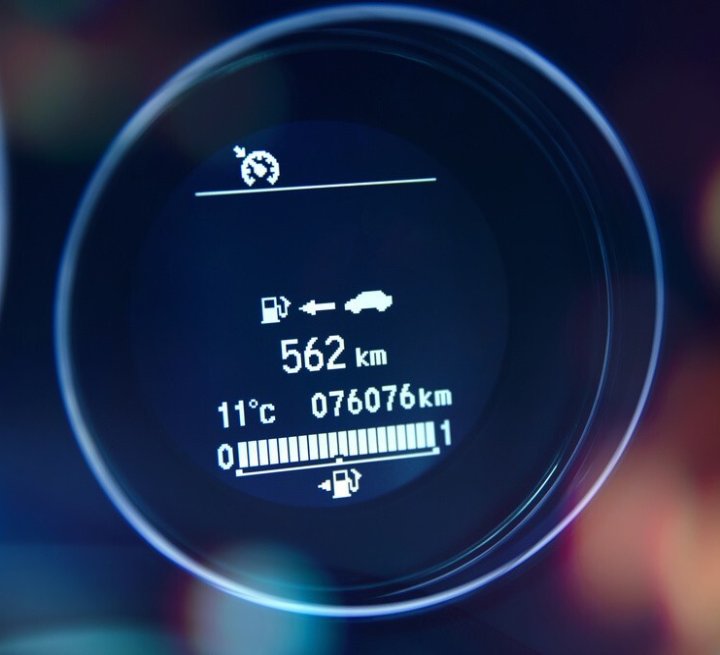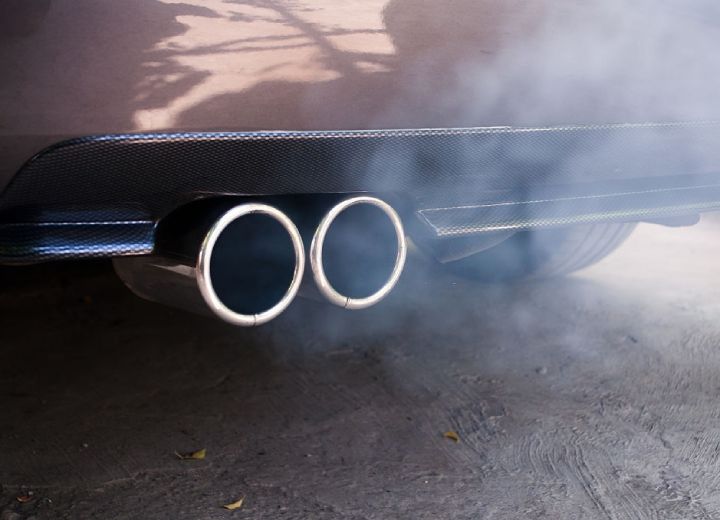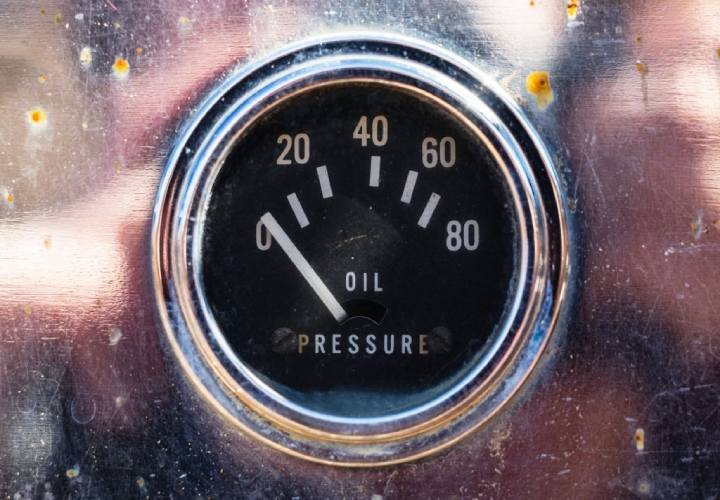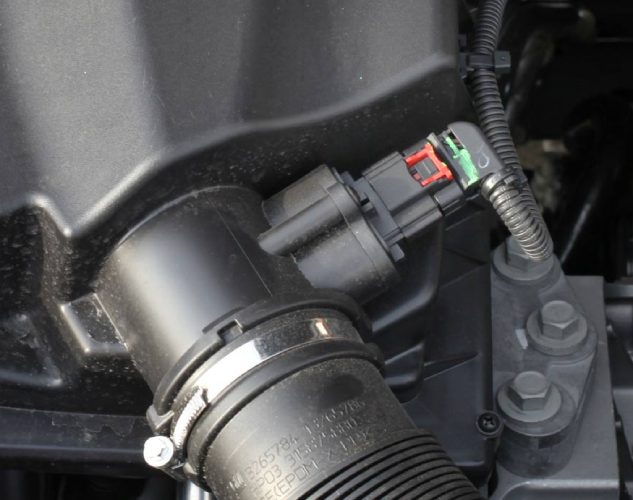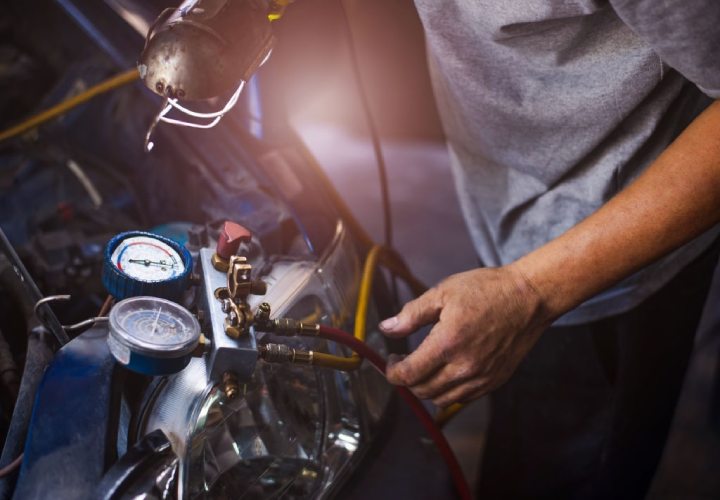Engine blowby is a common problem among vehicle owners. It signifies a problem with your engine part, mostly relating to failing engine parts, including problems with the piston, piston ring, and cylinder wall.
Once you notice a strange noise from your engine bay and a significant loss of power, it could be due to an engine blowby.
This article looks at the meaning and causes and explains how to test and fix engine blowby. We also answer some of the frequently asked questions on the problem.
What Is Engine Blowby?
Engine Blowby is a common vehicle term and can happen to both diesel and gas engines. Blowby in the engine is a situation whereby gases escape from the engine combustion system and leak through the piston and cylinder. The gases then find their way into the crankcase.
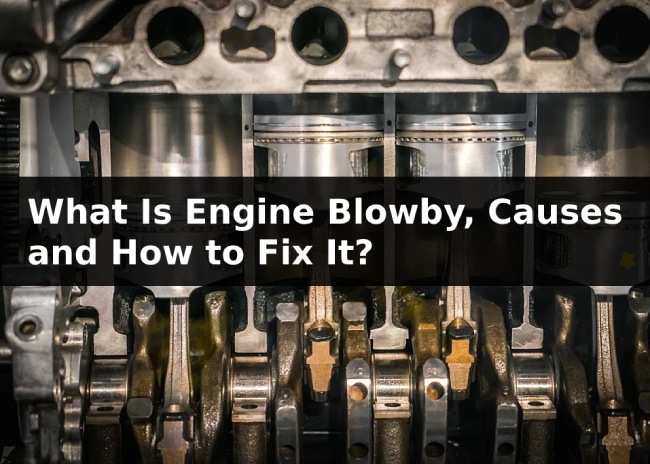
Gas pressure is created during combustion when air and fuel mixture are transferred to the combustion system. When the gas pressure exceeds the oil pressure in the cylinder, the gas finds its way to the piston rings and then to the crankcase.
Blowby in most engines can be traced to the poor condition of the piston rings and combustion. If the rings are worn out or damaged, or the cylinder wall is cracked, fuel and air mixture from the combustion chamber can easily escape.
A blowby will occur when ignition from the combustion ignites the escaped air-fuel mixture in the crankcase. It comes with a loud sound. The blowby could also come with some symptoms, including loss of power.
You must have heard the engine blowby when driving or across the road from another vehicle, and you might have wondered what was happening with the vehicle.
What Causes Blowby In An Engine?
When you experience blowby with your engine, it could be caused by a few things which border on the condition of your piston and cylinders. Below are some of the causes of engine blowby.
Worn Out Rings
A damaged piston ring is one of the most common and major causes of engine blowby. The piston ring serves as a seal for the combustion chamber, not allowing anything to get to the chamber while preventing pressure from escaping.
When the ring is damaged, pressure from the combustion chamber will escape into other parts of the engine, including the crankcase. When the ignition is in the combustion area, the escaped gases can easily ignite, causing the blowby.
High Carbon Levels
One of the causes of broken piston rings is due to high or excessive carbon. When the piston rings are exposed to excessive carbon, the rings tend to wear faster and eventually break.
Carbon build-up on the piston ring mainly comes from engine combustion. When fuel is not correctly or incompletely burnt, black soot contains a high amount of carbon.
Worn Cylinders Or Pistons
Another cause is worn-out pistons or cylinder parts. The cylinders and pistons play a vital role in running the engine. Since the piston is always moving and the cylinder walls have to cope with the movement of the piston, they both can get worn.
When the piston gets broken or the cylinder walls crack, pressure can escape from the combustion system.
How Do You Fix An Engine Blowby?
When you experience an engine blowby and are looking to fix the blowby, the first thing you need to do is determine the cause of the problem. By doing this, you will be able to fix the problem easily. You can check the piston rings, piston, and cylinder for any damages.
Below are some of the ways you can fix your engine blowby problem.
Replace Any Faulty Piston Rings
When piston rings are damaged, pressure escapes from the combustion. To properly keep the combustion chamber sealed, you must replace the piston rings. Ensure that the piston ring is properly placed so that pressure cannot escape from the combustion area.
Replace Pistons
If a damaged piston causes your engine to blowby, you need to replace it immediately. Carefully observe the piston for breaks and cracks. Once you notice them, you can go on to replace them.
Replace the Engine Block
You will have to replace the engine block, or you will need to remanufacture new cylinders once you notice any damage on the cylinder walls, like cracks, scratches, and more.
As mentioned earlier, those are the engine blowby’s major fixes. There is also some minor solution to the problem, which could be readjusting the piston rings, oil treatment, and cleaning crankshaft ventilation.
How Do You Test For Engine Blowby?
One of the best ways to observe engine blowby is to look out for signs related to this problem. Below are some of the symptoms of engine blowby.
White Smoke
One common symptom of an engine blowby is white smoke coming valve cover. It signifies that the combustion is escaping to the crankcase and burning up oil.
Noise
Also, you will hear loud sputtering sounds from your engine compartment. Additionally, a strong burning smell might enter the cabin.
Poor gas mileage
Due to the escaping combustion pressure, your engine is less efficient and will consume more fuel. The engine will try and create as much power as before, releasing more fuel to the combustion chamber. As a result, you might find yourself filling up more often.
Oil Film
You will also find oil film on the tube. It is caused by the unburnt fuel escaping from the combustion chamber, contaminating the oil.
Poor engine performance
Your engine will lose some power due to the fuel and air mixture escaping from the combustion. It may cause your engine to idle rough and misfire.
Can Blowby Damage An Engine?
Engine blowby can damage your engine if not fixed immediately. The extent of damage that a blowby in the engine can cause depends on the source of the problem. If the cause is due to a damaged cylinder wall or piston, it could lead to a much more serious problem if not checked and fixed.
A damaged cylinder wall could cause significant damage to your engine. It could cause gasket leaks, metal to bend, and other expensive damages. If the problem is not fixed soon enough, it could cause the engine to overheat and eventually stall.
If the cause of the problem is due to a cracked or damaged piston, then you need to avoid driving the car at all costs. One of the major causes of engine failure is damaged pistons. Your engine will have gas leaks, increased emissions, and compression loss.
What Happens If You Don’t Fix Blowby?
If you choose to ignore your blowby issue, air, fuel, and other substances will escape into the crankcase, leading to all sorts of problems. Once the crankcase is contaminated, its filter also gets clogged..
Also, the blowby is caused by cracks or broken parts of the major parts of the engine, like the piston and cylinder. Broken parts can get into other moving parts of the engine, causing them to fail.
Furthermore, engine blowby can lead to significant loss of power. When combustion pressure is continuously lost, the engine cannot produce the right amount of power. As a result, your vehicle will feel underpowered.
Engine blowby will affect the fuel injection of your engine. It will further affect the octane rating of the mixture of fuel and air. When the octane rating drops too low, then it could cause a knock. Knock is when the fuel-air mixture is ignited too early, before the plug fires, which results in high pressures in the cylinder.
In addition, fuel consumption will increase significantly. It is due to the increased loss of pressure in the combustion system.
You must pay attention to a blowby problem as it affects the engine, and any further damage caused can make a huge dent in your wallet.
Can You Prevent Blowby?
Yes, you can prevent engine blowby by properly maintaining your engine; and stikcing to the maintenance schedule explained in your owner’s manual. The main cause of blowby is damaged piston and cylinder, caused by engine overheating.
Overheating occurs in the engine when there are insufficient fluids like coolants, water, and engine oil. Below are some ways to prevent damaged pistons and cylinders, which could result in blowby.
Regular oil checks and change
Engine oil plays a major role in ensuring that the engine parts, such as pistons, move smoothly and prevent heat that could result due to friction. You need to ensure that the engine oil is properly topped up. Regularly check the oil level, and if it is low, please ensure to refill. You should also replace your engine oil according to your car’s manufcaturer instructions.
Use the right engine oil
Every engine has a recommended oil type. The most recent engines make use of synthetic oil, but that is not enough. The oil viscosity places a major role in how the oil will function in all weather conditions, and depending on where you live, the viscosity will differ.
Using the wrong oil type could affect the engine, causing serious damage to its pistons and cylinder walls. You can consult your vehicle’s manual to get the exact oil type that is recommended for your engine.
Check and topup coolants regularly
Another cause of cracks or wear in the engine is low or poor coolant. Coolant helps reduce the amount of heat that results from the engine. When the coolant is low or looses its properties, the engine can start overheating, creating cracks in the cylinder walls and pistons.
Make sure to stick to the coolant recommended by your vehicle manufacturer. Check your owner’s manual to get the specific intervals at which the coolant should be replaced.
Closing Thoughts
Once you notice this problem, you should have a proper diagnosis for the cause, and ensure to fix it immediately. Engine blowby, if not fixed as soon as possible, could lead to failing parts of the engine, which could eventually cause the engine to fail.
Diagnosing and fixing engine blowby is not a simple task, and most drivers do not have the knowledge nor the tools necessary to do it. You should visit your local repair garage if you cannot get the diagnosis and fix done yourself.
Mark is a senior editor for Mechanic Ask, creating tech-focused articles about diagnostics, tools, and new auto servicing methods. He attends industry shows to stay current. With a mechanical engineering degree, Mark is able to translate complex technical details into explanations understandable for shop owners and technicians. His articles help shops improve processes, reduce costs, and boost productivity.

